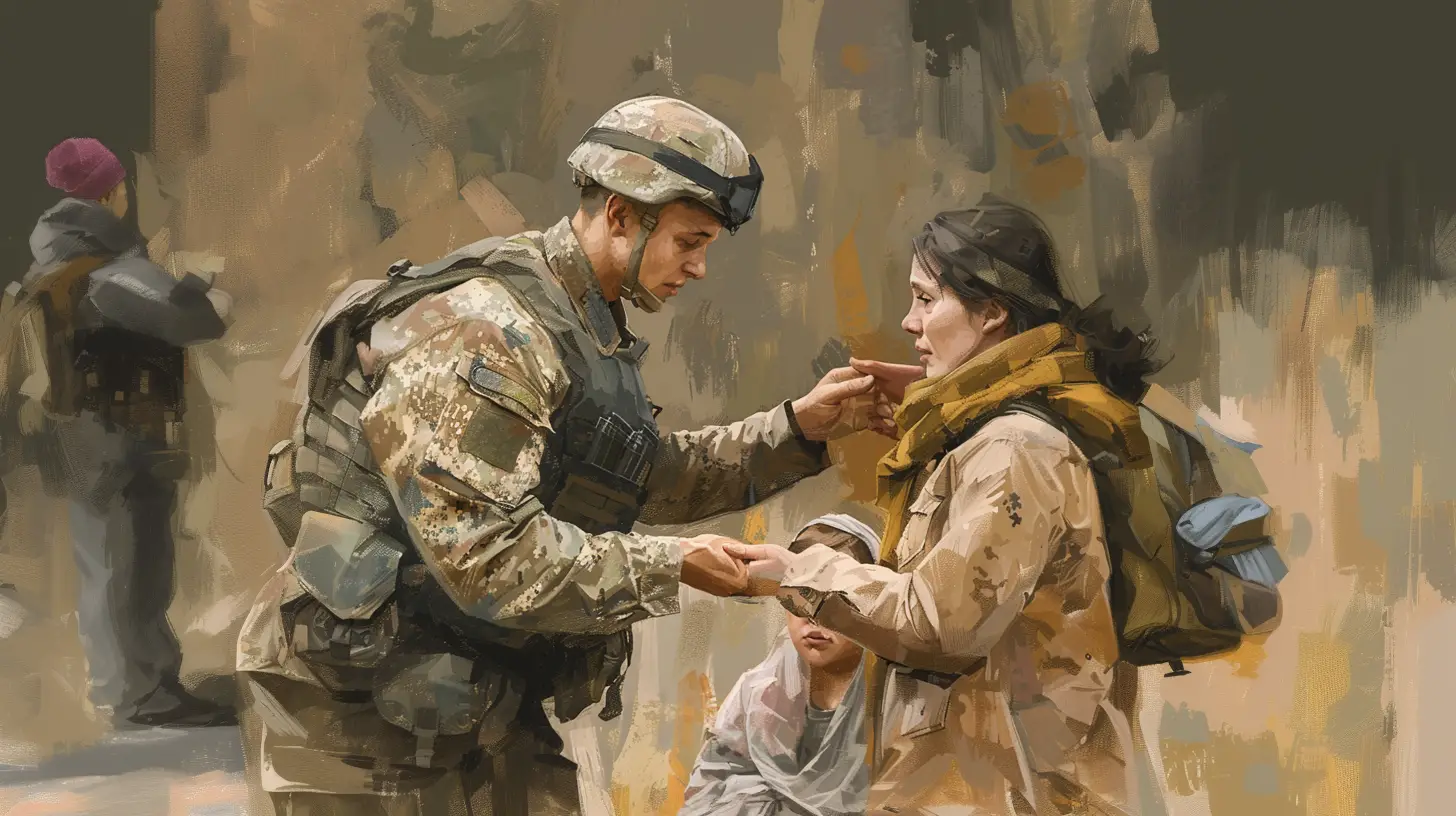Social project by DailyHubNews: “Psychological support for veterans: understanding and help after returning from the combat zone”

We, the international publication DailyHub.News, which publishes content in four languages, are initiating an important social project called “Psychological support for veterans: understanding and help after returning from a combat zone”. Through this project, we aim to raise public awareness of the importance of supporting veterans returning from combat. Military conflicts leave deep psychological wounds and community support is key to the successful rehabilitation of military personnel. Creating a supportive environment for these people is of global importance, and our project aims to facilitate this both in Ukraine and in other countries. DailyHub.News provides a platform for professional advice and expert opinions from psychologists to help society better understand the needs of veterans and provide them with appropriate support. We hope that this material will become a valuable resource for those seeking to help our defenders.

Today, psychologist Anna Tykhomyrova from Kyiv shared her tips. She works in the field of cognitive behavioral therapy as the main one, and additionally integrates elements from other areas: body-oriented, deep and emotional imagery therapy. She helps with depression, anxiety disorders, traumatic experiences, and interpersonal conflicts. Anna has a master's degree in psychology and 5 years of experience.
YouTube: https://www.youtube.
Telegram: @tykhomyrova
E-mail address: [email protected]
Physiology of war: what is normal in abnormal circumstances
Our body feels best when it is balanced between tension and relaxation. We feel uncomfortable when we are too tense or, conversely, powerless and apathetic. The most comfortable state is cheerful relaxation or measured focus, when we enjoy the activity and can discipline ourselves at the same time.
War is dangerous because it forces the body to stay in a state of overstrain for a long time. To survive, the brain inhibits the centers responsible for rational thinking and planning. These processes require a lot of energy, so the brain switches to a survival system. In this state, the areas responsible for scanning the body and sensory systems, as well as rapid control of bodily processes are active: tunnel vision, increased vigilance, heart rate, and a “fight or flight” response. These reactions help to respond to threats instantly.
Soldiers are trained to act on automatic in stressful situations. Control over the survival algorithm increases confidence and reduces the risk of psychological trauma, which often arises from a sense of helplessness in the face of mortal danger. However, prolonged exposure to hyperstress requires time to recover. After returning home, soldiers need time to regain their state of calm and sanity. It is normal for a person to have an excited nervous system and difficulty relaxing after combat. Increased irritability and aggression are common symptoms, and at this point, a warrior will benefit most from calmness, sleep, good food and the support of loved ones. Criticism or anger from others can only aggravate the situation, causing the warrior to feel guilty and angry with himself, which can lead to isolation or alcohol abuse.
What should loved ones do when they themselves are tired but want to maintain relationships?
The first step is awareness. When both soldiers and their loved ones understand how the body works under stress and what is normal, they can focus on the right actions to take to recover. Study the literature on this topic and seek professional help to avoid complications and ensure timely involvement of therapy if necessary. The second step is communication. It's important to accept that everyone is feeling tired and frustrated more often nowadays. You should not take your partner's irritated behavior personally. It is better to pause and return to the conversation when both of you are ready. You may need new rules of engagement to better alert each other to your states. For example:
- When I'm angry, I don't want you to leave or walk away from me, but I can't talk calmly.
- I get scared when you get angry and want to run away. What should we do?
- We agree: when I feel angry, I will warn you, I will say: “I'm really angry right now”, and I'll take a shower or do a breathing exercise. I will come back calm and we will continue.
- Thank you, I'll make us some tea in the meantime.
This “survival algorithm” will help you not to be afraid for your relationship. On the contrary, it will increase the sense of security and trust. To make it easier to talk about your emotions, you should track them. There is a simple exercise for this. During the day, write down situations that caused a strong reaction, describe the physical and emotional sensations and their intensity on a scale from 0 to 100. This will help you understand yourself better.
The last tip is to pay attention to relaxing activities. Deep breathing, contemplation of nature, water procedures, light workouts, and massage help. Keeping a diary also helps to relieve emotional stress. Do not forget that you are not alone. There are people who are ready to help - don't be afraid to ask. Because courage, understanding and unity give us the best chance of winning.











